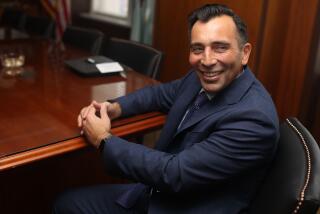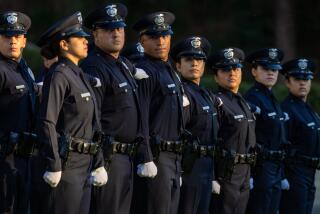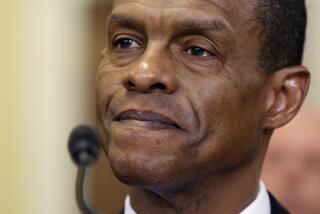At citizen academies, devoted participants get their law enforcement fix
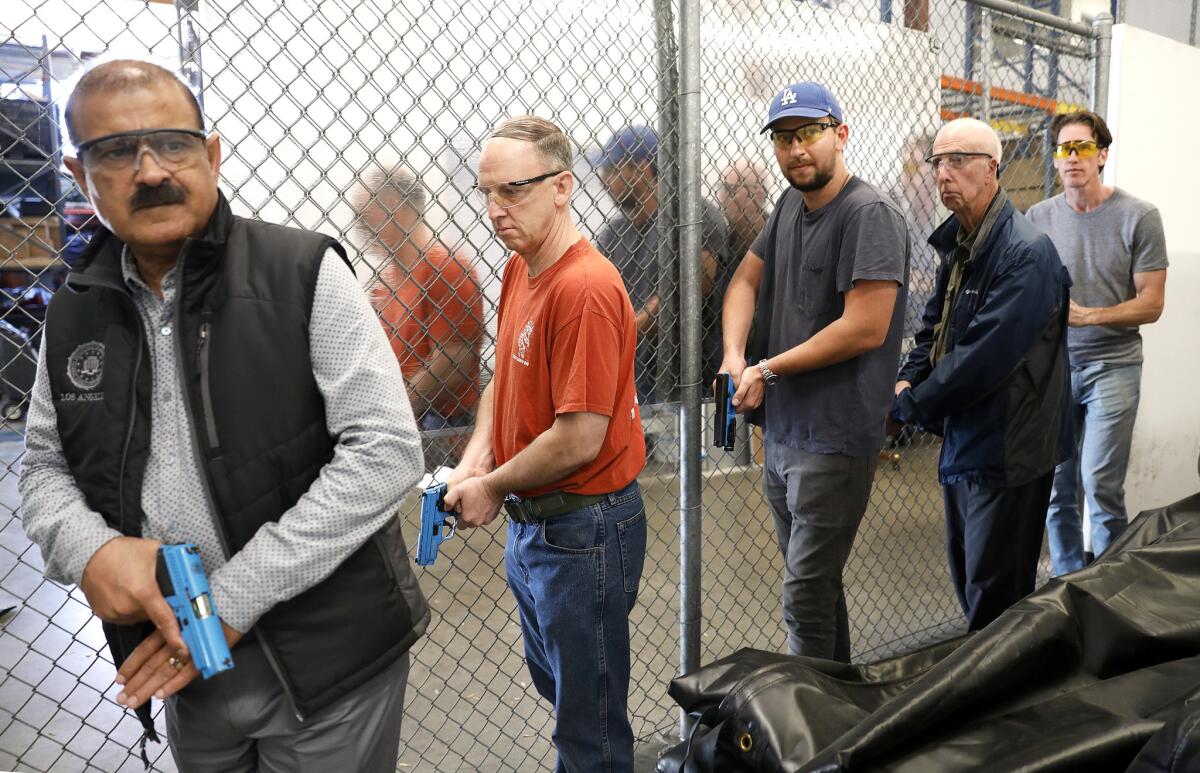
Ted Cooper was standing in an inspection area of the Los Angeles International Airport near 2 kilos of cocaine that had been found hidden at the bottom of a carry-on suitcase.
Outfitted in a black windbreaker and brown New Balance sneakers, Cooper was losing his patience with the suspect, who kept asking if he could give up what he knew and walk.
In his 60s, with white in what’s left of his hair, Cooper growled: “We don’t do catch and release!”
It was his fourth week with Homeland Security investigators. When he’s not pretending to be a hard-boiled federal agent, Cooper runs a consulting company — a job not conducive to delivering one-liners that could be cribbed from “Law & Order.”
Cooper is part of a small but committed tribe of law enforcement citizens academy junkies who have shot at ranges with the FBI, faux busted a safe house with the DEA and done stakeouts on make-believe bad guys with the ATF.
This fall, he was one of 16 people who went through an eight-week-long citizens academy run by Homeland Security Investigations, the investigative arm of ICE. In typical L.A. fashion, this year’s class included a screenwriter. Other participants included a congresswoman’s policy assistant, a mortgage broker, an Archdiocese of L.A. representative who emigrated to the country from Mexico — and lived in the U.S illegally for years — and a few employees of U.S. Citizenship and Immigration Services.
For agencies, the academies provide a chance to show people the nuts and bolts of how they operate. They persist at a time when distrust of law enforcement — amid criticism over police shootings of black men as well as President Trump’s jabs at federal agencies including the FBI — is high.
“We start thinking about police departments or Immigration and Customs Enforcement — they often operate invisibly, meaning people don’t really understand the inner functions,” said Brian Johnson, a professor of criminal justice at Grand Valley State University in Michigan. “This exposes citizens to the inner workings of a police agency so they have a better, more realistic understanding of it.”
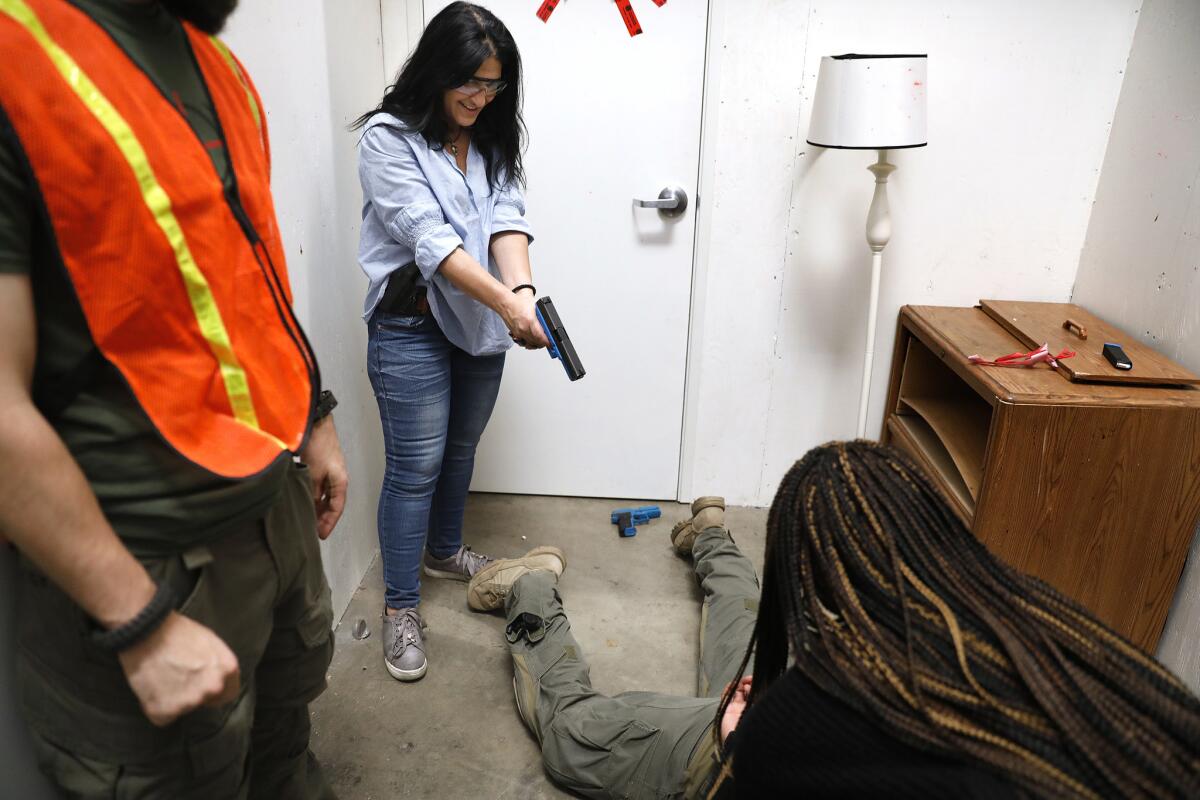
Like applying to a university, citizens academy applicants explain why they want to attend, as well as to which organizations or associations they belong. They undergo a background check.
Louise Gill, who met Cooper at a Drug Enforcement Administration citizens academy, has done ride alongs with local police departments and the California Highway Patrol. Gill, who hosts a TV show for the Armenian community, said she wanted to get her information “from the right source,” so she could share it with her viewers.
“Nobody knows until you go on a ride along what the police department goes through,” Gill said, “or what an officer goes through on a daily basis.”
“It gives you a great feeling of patriotism,” Cooper said. “I’ve always loved law enforcement. So now I have the ability to get involved in a very small way in law enforcement and to contribute by learning, and sharing what I’ve learned with others.”
He added: “There’s a lot of people out there who say abolish ICE. … Well, I can dispel that. I can say, let me tell you about all the good things they do.”
Citizens academies have been around since the 1960s, according to Johnson. Over the last 20 years, he said, they have become more popular because they’re “a vehicle to answer some of those questions that the community has.”
Although research is mixed, academies generally do serve to build relationships and trust, according to Johnson.
“You’re using your community members that you’ve educated to go out and further educate and build a sense of community and trust in the police,” Johnson said.
Both Gill and Cooper are members of the DEA citizens academy alumni association in L.A. Members meet every couple of months, work drug-take-back days and go to schools to talk to kids about the problems with drugs.
Decades ago, Fred Thomas, the president of the DEA citizens academy alumni association, dreamed of being a police officer and applied to the Beverly Hills Police Department. But when a hiring freeze followed, he moved on to a career in marketing. In 2009, he was able to get a taste of life in law enforcement while attending the DEA citizens academy for nine weeks. He spent time on a shooting range and learned about how the DEA tests drugs.
Since the citizens academy, he said, he’s recruited two task force officers in his community and set up drug education programs. The DEA citizens academy alumni association has about 90 active members across Southern California.
The HSI citizens academy only began only two years ago.
“The FBI, the DEA … they’ve been going on for 10 years, a long time,” said Jennifer Reyes, HSI assistant special agent in charge and organizer of the citizens academy. “We’re still growing, changing and trying to make it better.”
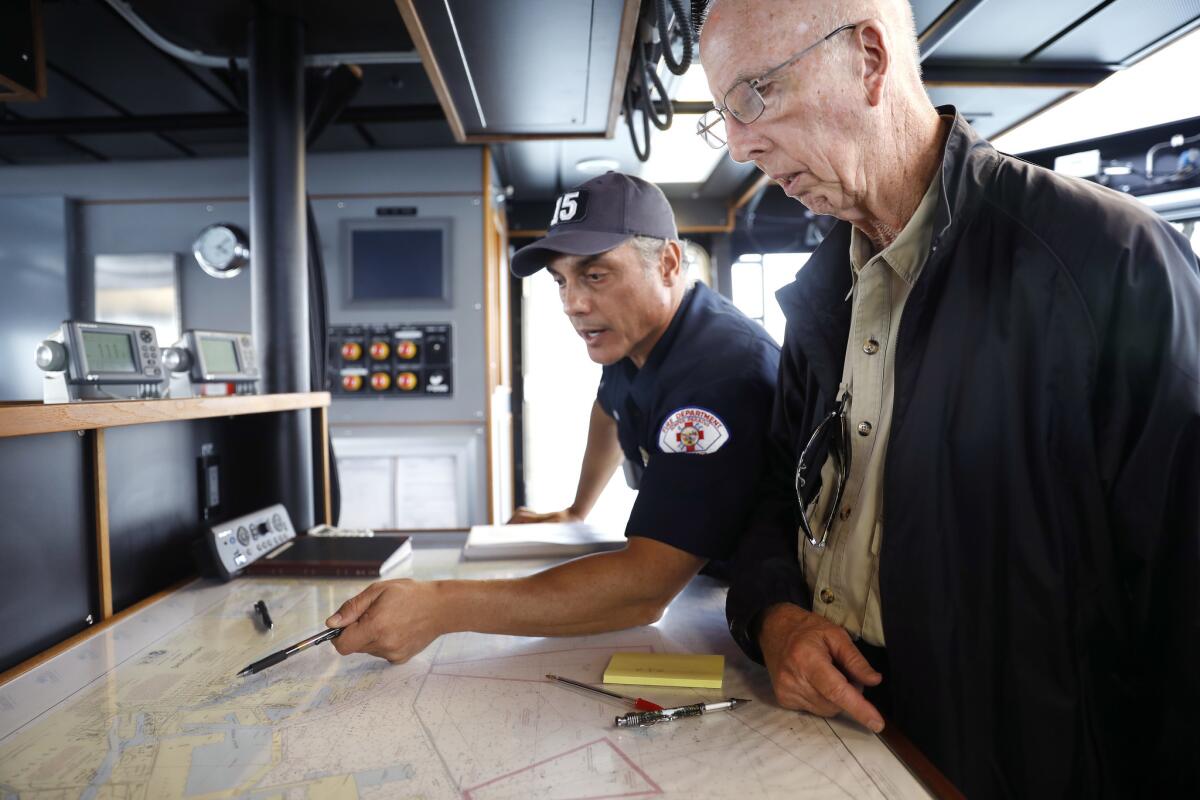
In the fifth session of the HSI citizens academy, participants grappled with a surveillance operation.
Two women tried to blend in with crowds near the Pike Outlets in Long Beach. The silence was broken by the crackle of voices over a black handheld radio. Gill, all in black, including her heeled boots, stood with Norchelle Brown, their ears pressed against the radio. The week before, the class had conducted an interrogation at the Los Angeles airport that led them here and to their fictional suspect, a man named Sergio Lopez.
Now, Gill and Brown, the policy assistant to Congresswoman Nanette Barragán, listened as Lopez, who was suspected of trade-based money laundering, talked with an undercover HSI agent. The agent told Lopez he had a lot of “white money” and needed it sent to Colombia to conceal funds.
Several teams loitered near the meet-up spot, following Lopez from a distance as he walked away from the agent.
“The FBI academy is like watching a movie,” Cooper said afterward. “This one is like being in the movie.”
Later in the week, class members reviewed defensive tactics and practiced entering a room with a partner. In a simulated operation, teams entered Lopez’s house.
As they moved in, gripping blue guns loaded with simunition — paintball-like ammo that fires like a real gun — a real HSI agent in a reflective vest coached them.
“Get out of my house!” an agent playing Lopez shouted. “You better not be the police.”
When shots rang out, Gill and Brown jumped, startled by the sound. Clyde Moore, who works for USCIS, had fired at Lopez after the suspect ignored demands to drop his weapon and began to raise his arm.
“He’s down, man down!” Moore shouted, after shooting the suspect three times. After Brown grabbed the suspect’s arm and simulated handcuffing him, the agents reviewed how it went with the team.
“I was a mess,” Brown admitted. “I jumped, I almost ran.”
As the team prepared to leave, Gill turned to the agents: “We appreciate what you guys do.”
Twitter: @Brittny_Mejia
More to Read
Start your day right
Sign up for Essential California for news, features and recommendations from the L.A. Times and beyond in your inbox six days a week.
You may occasionally receive promotional content from the Los Angeles Times.

